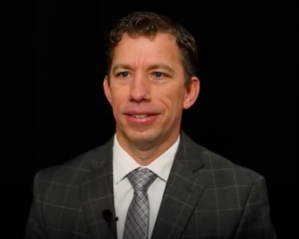NSF wants to predict and prevent the next pandemic with AI

The National Science Foundation wants researchers to develop artificial intelligence systems capable of forecasting pandemics like the ongoing COVID-19 pandemic.
Dubbed the Predictive Intelligence for Pandemic Prevention (PIPP) program, NSF has already funded and held four workshops since February scoping the research that still needs to be done to create the necessary algorithms.
PIPP’s goal is to detect disease outbreaks early enough to limit transmission and prevent epidemics and pandemics like the current one from ever occurring.
“It is clear that this will not be the last pandemic humanity will face,” Katharina Dittmar, program director of the Environmental Biology Division at NSF, said during a media briefing Wednesday. “We all recognize from the past year, from our experience that our approach to this continued challenge must really evolve away from crisis response during discrete outbreaks toward a sustained and integrated cycle of intelligent prediction, preparation, response and recovery.”
Intelligent prediction requires sustained investment, multidisciplinary teams, and cross-agency and international partnerships to continuously collect the necessary data. But it also requires new AI models for identifying the biological and sociological drivers of pathogen emergence, Dittmar said.
No “canned” algorithm exists that can do that, said Mitra Basu, program director of the Computing and Communication Foundations Division at NSF.
“New research has to be done in this space before one can confidently say, ‘Yes, this AI algorithm is predicting the right thing and providing us with explanations why it is doing that, instead of just a black box,'” Basu said.
That’s why PIPP convened workshops not only for computer scientists but also for medical researchers, biologists, and social and behavioral scientists. Predictive analytics are already underway in those spaces, so it’s not as if NSF is starting from scratch modeling and applying AI to pandemics, said Arthur Lupia, the agency’s assistant director of social, behavioral and economic sciences.
Still, NSF officials didn’t provide a timeline for when PIPP algorithms capable of forecasting pandemics would be operational.
“It’s often very difficult to pinpoint the day on which you’re going to make the key discovery,” Lupia said. “But the one thing that only NSF can do is accelerate those timelines so that we get the results that we really need, the insights we need sooner rather than later.”





